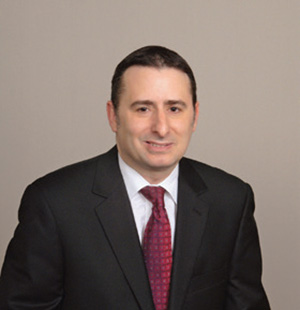
By Steven Genack
If you need a literal awakening for Sunday, then just pay heed to the beginning of this week’s parsha, “Atem nitzavim hayom kulchem lifnei Hashem Elokeichem, All of you are standing, this day, before the Lord, your God.” Then investigate the haftarah where it says (Isaiah 63:8), “For He said, ‘Surely they are my people, children who will not deal falsely’; and He became their Savior in all their distress.” This verse clearly indicates that we are God’s children. Thus, two seminal concepts for Rosh Hashana are established: true, we are standing in front of a mighty and exalted King, but we are also His children. A father always has mercy on his children no matter their predicament.
Furthermore, there are two more reasons to feel comfort when approaching this awesome day.
One reason involves investigating the “Source” of the world, and the other the “source” of our composition.
Rav Soloveitchik, zt”l, puts forth a phenomenal idea that should help us understand that God Himself, the Source of everything, was the “Creator” of mistakes. The Midrash (Bereishit Rabba 3:7) notes that God created and destroyed many worlds before creating the permanent one that we now live in. Rav Soloveitchik, zt”l, explains that God was setting the precedent for man that failure is a natural process and a process that will now be a reality in this world. Through trial and error God opened up the reality and tolerance for lapses. This should give us a feeling of comfort when facing the Creator himself when acknowledging our shortcomings
A second reason can be offered based on an insight by Rav Goldwicht, shlita, rosh yeshiva of Yeshiva University. He explains beautifully that if you look to the “source” of man’s composition you find “dust.” Man was created out of dust. We know the earth (dust) disobeyed God’s command, for God instructed the ground to create a tree that tastes like the fruit it bears, yet the earth disobeyed and formed a tree that had no taste. (Rav Kook, zt”l, explains that the ground felt that the tree was a mere extension to reach the fruit, representative of the journey of life that it viewed as a bitter process, but the ground was mistaken, for the journey toward the result [fruit], though grueling, is just as purposeful and viewed equally as sweet in God’s eyes.) Therefore, God should understand our inclination toward sin, as we are composed of dust, an element that rebelled against Him.
I believe this explains the verse we say in tachanun (Psalm 103:14), “For He knows how we are formed, He remembers that we are dust.” In essence, we’re telling God to look at the dust we are composed of as the reason for our fallacies and not our inherent actions.
By investigating the “Source” of the world and the “source” of our composition (which disobeyed God in failing to realize the journey is just as important as the results, affirming that mistakes themselves are valuable), and knowing we are God’s children, we can approach a day of trembling with some kind of comfort knowing that mistakes were already born into this world before our existence, thus giving us an opening to ask for mercy.
Steven Genack is the author of “Articles, Anecdotes & Insights,” Genack/Genechovsky Torah from Gefen Press.













